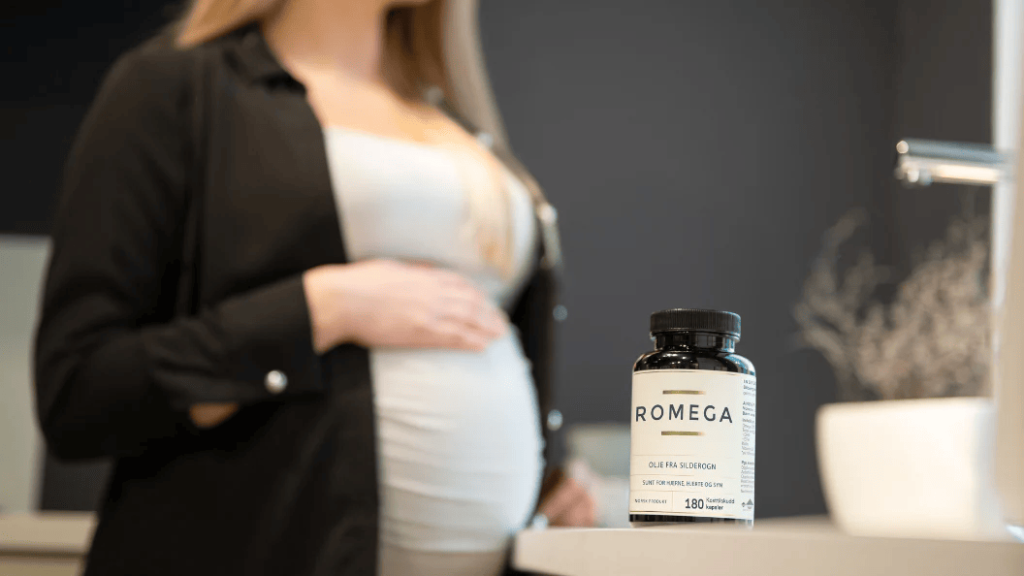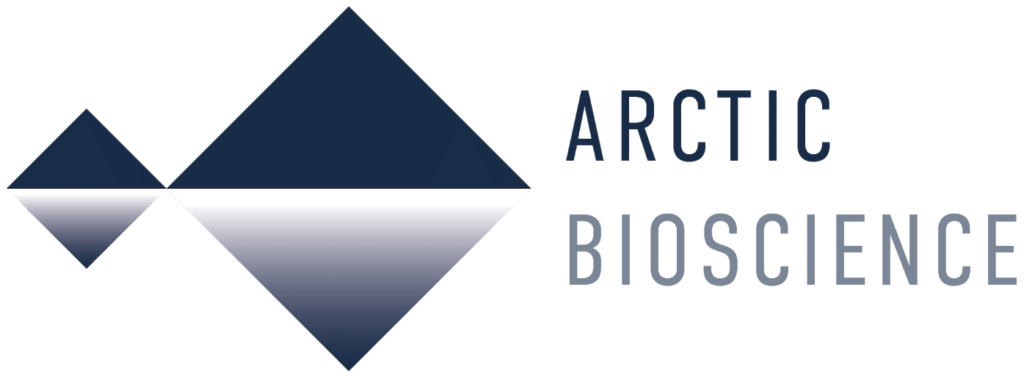A dietary supplement for you who are pregnant and breastfeeding
The Norwegian Directorate of Health recommends maintaining good lifestyle habits during pregnancy and breastfeeding, of which diet plays an important role. 1 Good nutrition and the intake of the right nutrients are important both for your own health, and for your child’s development and growth – both during and after pregnancy. 2
Basically, you should get enough vitamins and minerals through a varied and healthy diet. However, it may be necessary to supplement the diet with nutritional supplements to cover the need for selected nutrients. 3
DHA fats are important for the child’s development and health
As a pregnant woman, you should get enough omega-3 to ensure you meet your and your baby’s needs. 3 The Omega-3 fatty acid DHA is one of the key nutrients that the health authorities recommend including in the diet of you who are pregnant. 2
Because did you know that DHA contributes to the normal development of your child’s brain?*
During pregnancy, it is particularly important to have enough of the omega-3 fatty acid DHA, because then the fetus uses up the mother’s stores. In the last part of pregnancy and in the first years of life, our brain goes through enormous growth. DHA is particularly important for the brain development of infants.
The special fatty substances found in Romega are similar to the fatty substances found in the brain, making Romega a good source for maintaining healthy brain health.**
*) A beneficial effect is achieved with a daily intake of 200 mg in addition to the recommended daily intake of omega-3 fatty acids for adults, i.e. 250 mg of DHA and EPA.
**) A beneficial effect is achieved with a daily intake of 250 mg DHA.
The child’s DHA levels during breastfeeding are often linked to the mother’s intake
In the first years of life, our brain undergoes enormous growth, and DHA is important for normal brain development in infants. 5 During breastfeeding, the child’s supply of DHA will often be linked to the amount of DHA the mother consumes through her own diet.
Did you know that you should eat fish 2-3 times a week to meet the recommended requirement? 4
The Norwegian Directorate of Health recommends a daily intake of 200 milligrams of DHA for pregnant and breastfeeding women. 1 The mother’s DHA levels drop during pregnancy and in the period after birth, and it is therefore particularly important to follow the Norwegian Directorate of Health’s advice on the intake of DHA. 5
If you are unsure whether you are getting sufficient amounts of DHA through your diet, it may be useful to use an omega-3 supplement.
Omega-3 – the starter pack for new life
Did you know that Romega is extracted from herring roe, which has a high content of DHA?
We make Romega from the roe oil for the Norwegian spring-spawning herring. The roe oil has a high natural content of the omega-3 fatty acid DHA. The high content of DHA means that Romega can be a good alternative for pregnant women who want to follow the Norwegian Directorate of Health’s advice on omega-3 intake. Romega also contains the special type of fat phospholipids. Phospholipids are a type of fat that can be mixed with water, which can contribute to a better absorption of omega-3 fatty acids in the body. 6
Two capsules of Romega contain 320 mg of DHA. By supplementing Romega with a normal diet both during and after pregnancy, you can be sure that you will meet the recommended daily requirement of the important omega-3 fatty acids.*
* The beneficial effect is achieved with a daily intake of DHA of 200 mg in addition to the recommended daily intake of omega-3 fatty acids for adults, i.e. 250 mg of DHA and EPA.
Sources:
1) The Norwegian Directorate of Health (2018a) . Diet for pregnant women. Directorate of Health, Oslo. Retrieved 05/25/20.
2) The Norwegian Directorate of Health (2018b) . Good lifestyle habits before and during pregnancy (brochure). Directorate of Health, Oslo.
3) The Norwegian Directorate of Health (2018c) . Do I need to take nutritional supplements? Directorate of Health, Oslo. Retrieved 05/25/20.
4) Braarund, HC et al. (2018). Maternal DHA Status during Pregnancy Has a Positive Impact on Infant Problem Solving; A Norwegian Prospective Observation Study. Nutrients, 10, 529.
5) Cook, MC et al. (2016). Bioavailability of long chain omega-3 polyunsaturated fatty acids from phospholipid-rich herring beet oil in men and women with mildly elevated triacylglycerols. PLEFA, vol. 11, P17-24.






